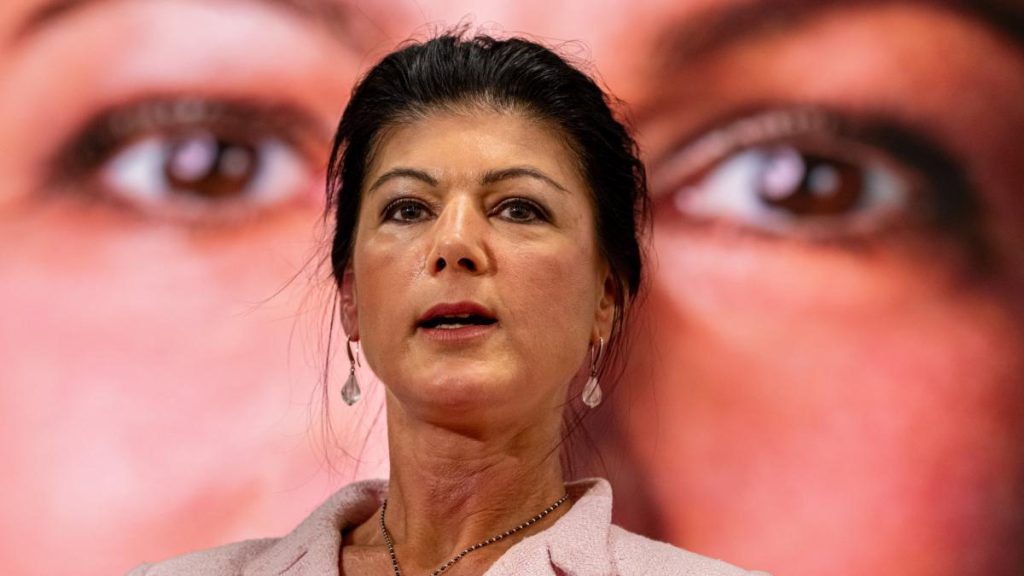The BSW campaign for the European elections is focused on promoting Sahra Wagenknecht, the leader of the BSW party, despite her not being a candidate herself. The campaign features her prominently on posters with slogans like “Abstieg oder Aufbruch?” (Descent or Departure?), emphasizing her leadership qualities and the party’s message of change. The party plans to tour major cities in Germany with Wagenknecht and other party members leading up to the elections in June, with a grand finale planned in Berlin. The campaign is estimated to cost around three million euros, with the party aiming for a successful debut in the European elections.
Sahra Wagenknecht, co-chair of the BSW party, expressed the party’s vision for a confident and sovereign Europe, advocating for an end to the influence of lobbyists and financial interests in the EU. The party aims to position itself as a democratic alternative to mainstream parties, distancing itself from extremist elements in other parties. The campaign focuses on generic slogans like “Krieg oder Frieden?” (War or Peace?), aiming to appeal to a broad audience with simple messaging. While the campaign has been praised for its professional quality, some critics note a lack of clarity on specific policy goals.
The BSW campaign leverages Sahra Wagenknecht’s high profile and popularity to attract support, particularly in regions like Saxony and Thuringia where the party has seen strong polling numbers. Despite plans to eventually change the party’s name after the 2025 federal elections, the current strategy revolves around Wagenknecht’s recognition among voters. However, the party faces challenges in developing a coherent policy platform, with no concrete program in place yet. Party leaders emphasize a new style of politics focused on honesty and reason, but details remain vague.
The BSW party aims to present itself as a force for peace in a Europe where the language of war is resurfacing. Sahra Wagenknecht has attracted attention with proposals for peace talks between Russia and Ukraine, as well as calls for arms embargoes. The party’s street campaign featuring Wagenknecht seeks to rally support around the message of peace and stability in Europe, contrasting with the current political climate. The party’s emphasis on Wagenknecht’s leadership and the promise of a new political approach resonate with voters looking for alternatives to mainstream parties.
As the BSW party gears up for the European elections, its reliance on Sahra Wagenknecht’s image and message presents a mix of opportunities and challenges. The party’s focus on a high-profile leader and a simple, appealing campaign message has garnered attention and support, particularly in regions where dissatisfaction with mainstream parties is high. However, the lack of a detailed policy platform and the need to translate popularity into concrete electoral gains pose hurdles for the party. The coming months will test the BSW’s ability to translate its campaign momentum into votes and establish itself as a significant player in European politics.


